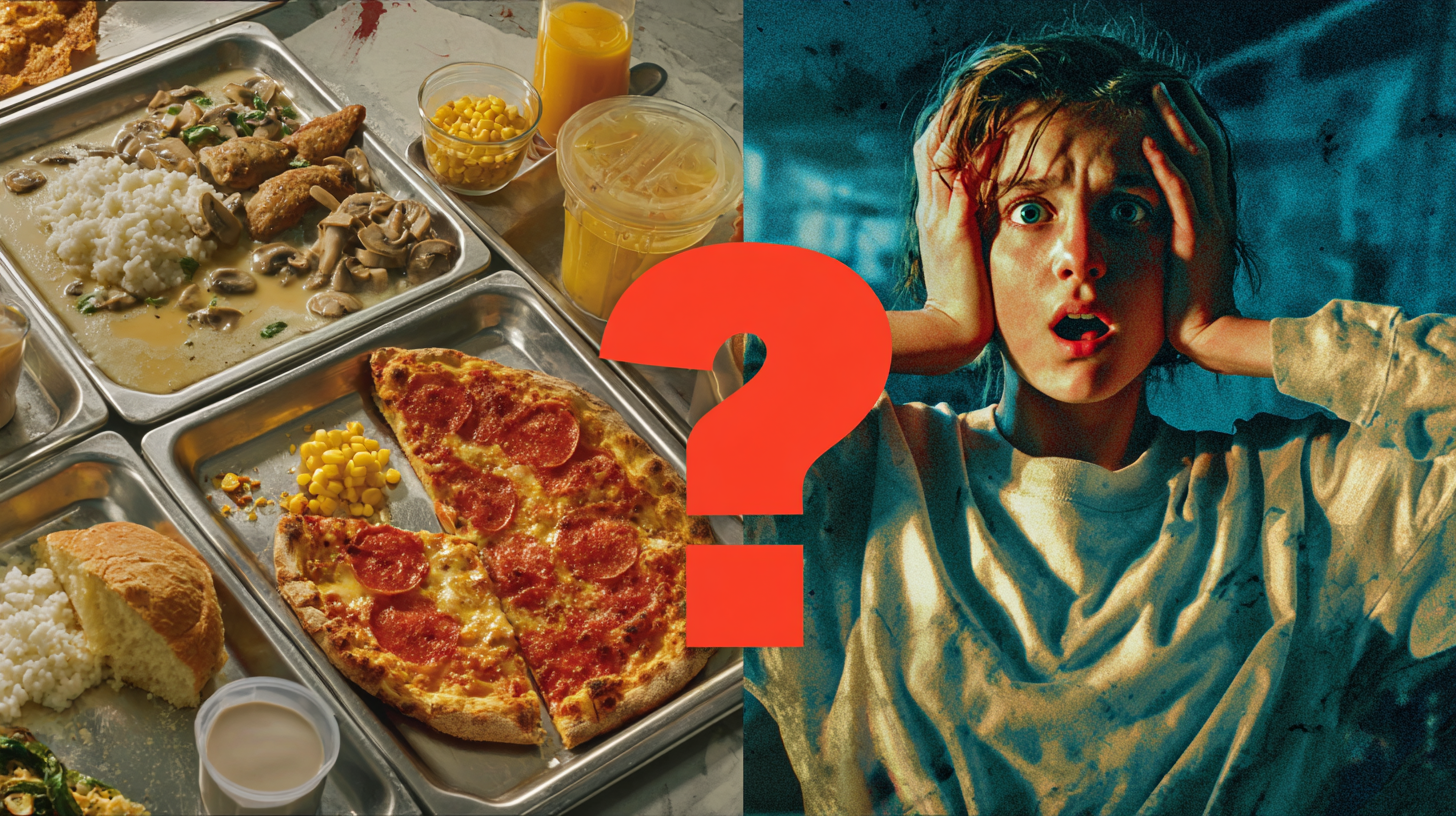Global School Lunches: Best vs Worst – Where Are Students Eating Well (or Not)?4 July 2025 By Johnber  NewsTogether

When discussing global education, most conversations focus on test scores and teaching quality. Yet one overlooked but pivotal part of a student’s daily life is what they eat for lunch. School meals not only influence health but also shape lifelong eating habits and even academic performance. So, which countries serve the most nutritious, flavorful, and aesthetically pleasing lunches—and which fall short?
Let’s explore the top 3 and bottom 3 school lunch systems around the world based on taste, nutrition, presentation, and student satisfaction.
🥇 Top 3 School Lunches in the World
🇯🇵 Japan – Balanced Perfection
Japan’s school lunch program is lauded for its meticulous planning and nutritional balance. A typical lunch might include rice, grilled fish, miso soup, and steamed vegetables. Meals are freshly cooked on-site, and students take turns serving each other, promoting discipline and camaraderie. The food is wholesome, palatable, and always aligned with health guidelines. Japan exemplifies how school meals can be both educational and enjoyable.
🇫🇷 France – Culinary Sophistication
In France, lunch is a sacred ritual. Even at school, children are exposed to a rotating menu of regional and sophisticated dishes: chicken in mushroom sauce, ratatouille, couscous, cheese, and even dessert. Meals are designed by dietitians and chefs to foster moderation, refined taste, and gastronomic appreciation. Eating slowly and socially is encouraged. French students learn that food is an experience, not just fuel.
🇮🇹 Italy – Fresh and Flavorful
Italian school lunches embrace local ingredients and traditional recipes. Children are often served pasta with fresh tomato sauce, grilled meats, leafy salads, bread, and seasonal fruit. There’s an emphasis on simplicity, regional identity, and natural flavor. Even though meals may seem humble, the quality is exemplary. Italy proves that wholesome doesn’t have to mean complicated.
🥄 Bottom 3 School Lunches in the World
🇺🇸 United States – Processed and Polarizing
American school lunches vary widely but are often criticized as monotonous, overprocessed, and lacking fresh ingredients. Pizza, burgers, and canned vegetables dominate the menu. Despite reforms like the "Healthy, Hunger-Free Kids Act," many meals remain nutritionally deficient and visually unappealing. Food is commoditized, with little emphasis on taste or culture. Some students skip lunch entirely, citing it as unappetizing or repugnant.
🇬🇧 United Kingdom – Inconsistent Quality
The UK has made incremental improvements, but its school meals still suffer from inconsistency. While some schools serve hearty shepherd’s pie and vegetables, others rely on frozen nuggets and sugary puddings. Critics argue the system lacks a uniform standard, leaving students in poorer regions with inferior options. Past scandals—like the "Turkey Twizzlers" controversy—still haunt the public's trust.
🇮🇳 India (Rural Areas) – Quantity Over Quality
India’s Mid-Day Meal Scheme feeds millions of children daily, especially in rural areas. While it’s a commendable effort to reduce hunger and improve attendance, the meals are often rudimentary: plain rice with lentils, occasionally supplemented with vegetables. The program has faced hygiene issues and nutritional inadequacy. Though life-saving for many, the food lacks culinary diversity, visual appeal, and adequate nutrients.
📘 Final Thoughts
School lunches are more than just meals—they’re a reflection of societal values, economic priorities, and cultural identity. Countries like Japan, France, and Italy show how thoughtful planning can elevate lunchtime into an enriching experience. Meanwhile, others struggle with funding, policy gaps, or logistical hurdles. As awareness grows, perhaps more nations will begin to revamp their school lunch systems and feed both the bodies and minds of future generations.
Keywords
pivotal:very important or central to something
nutritious:providing substances needed for health and growth
aesthetically pleasing:visually attractive or appealing
lauded:praised or celebrated publicly
meticulous:showing great attention to detail; very careful and precise
discipline:the practice of training people to obey rules or a code of behavior
camaraderie:mutual trust and friendship among people
wholesome:conducive to or suggestive of good health and physical well-being
palatable:pleasant to taste or acceptable to someone
sophisticated:highly developed or refined
moderation:avoiding extremes; staying within reasonable limits
gastronomic:related to the art or science of good eating
appreciation:understanding the value or importance of something
simplicity:the quality of being easy to understand or not complicated
exemplary:serving as a desirable model; representing the best of its kind
monotonous:dull, tedious, and lacking in variety
overprocessed:excessively treated or altered, especially in food
nutritionally deficient:lacking essential nutrients needed for health
visually unappealing:not attractive to look at
commoditized:treated as a basic, interchangeable product with little differentiation
repugnant:extremely distasteful; unacceptable
incremental:increasing gradually or in small steps
uniform:remaining the same in all cases and at all times
inferior:lower in quality, rank, or status
commendable:deserving praise or approval
rudimentary:basic or undeveloped; at an early stage
inadequacy:the state of being insufficient or not enough
culinary:related to cooking or the kitchen
revamp:to improve, revise, or renovate something
priorities:things that are regarded as more important than others
All rights reserved by 비투게더
*printable 자료와 문제를 원하시면 아래 링크로!
|